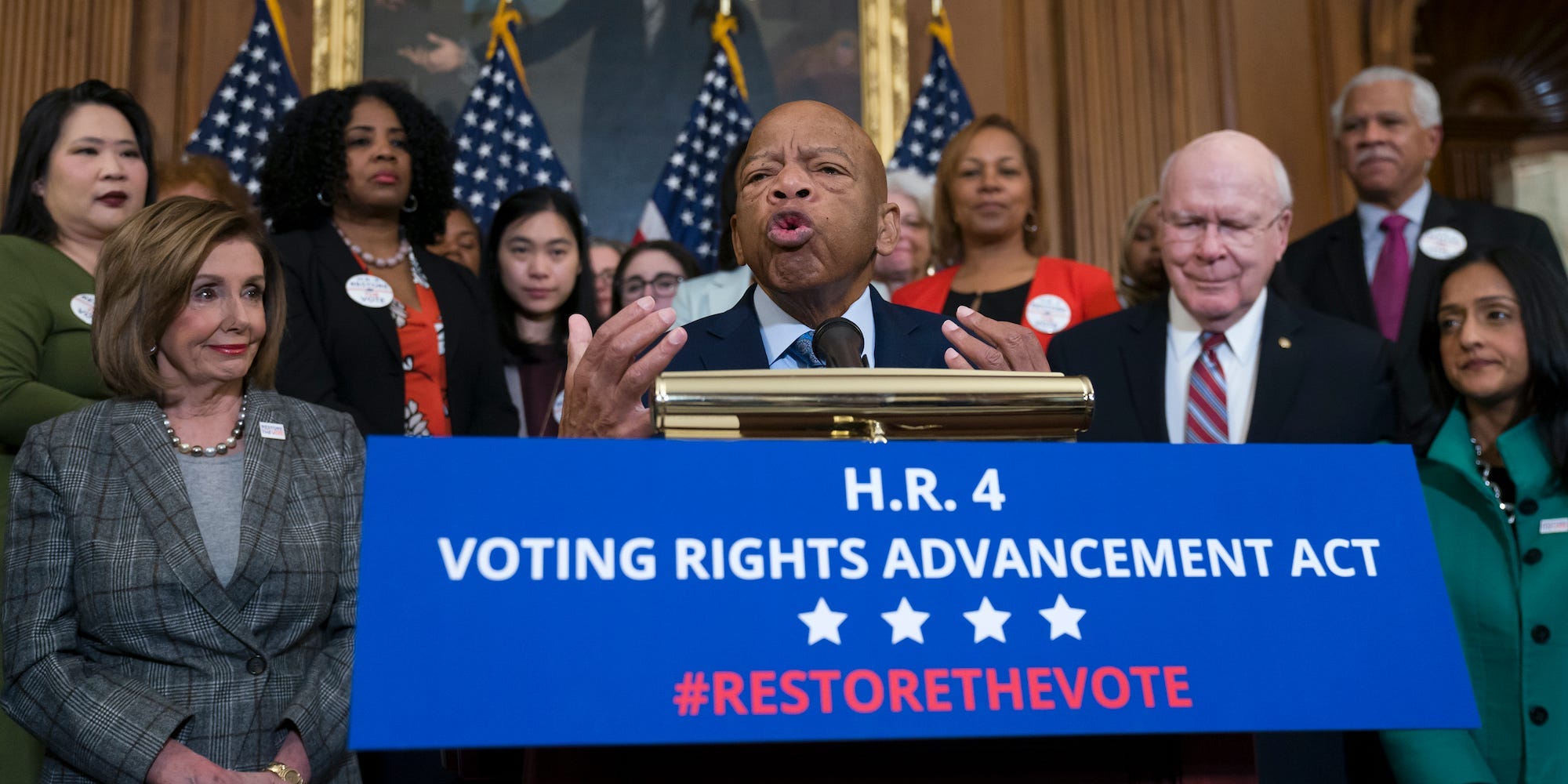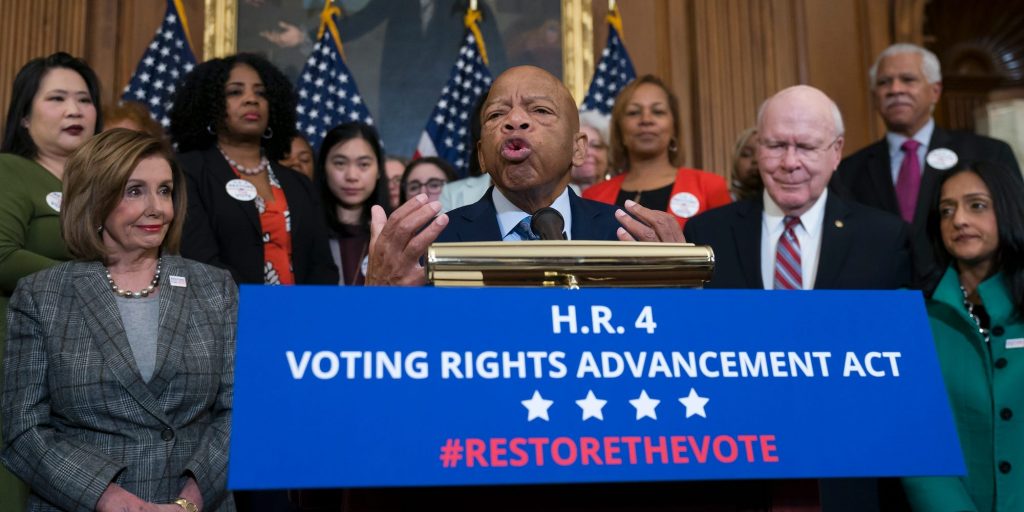
AP Photo/J. Scott Applewhite
- The US House passed a major bill to restore the Voting Rights Act of 1965.
- The John Lewis Voting Rights Advancement Act passed along party lines by a 219-212 vote.
- Republicans say the legislation is a partisan "power grab" and an overreach into federal elections.
- See more stories on Insider's business page.
The US House passed a major bill that would restore two key sections of the Voting Rights Act and rebuff much of the Supreme Court's election jurisprudence over the past 15 years.
The John Lewis Voting Rights Advancement Act, or H.R. 4, named for the former Georgia congressman and civil-rights leader, passed along party lines with the votes of 219 Democrats and no Republicans on Tuesday.
The House returned from its August recess to pass that legislation and the resolution that will serve as the blueprint for Democrats' $3.5 trillion budget plan. The chamber eventually proceeded to vote on both measures after a prolonged standoff over the budget between House Speaker Nancy Pelosi and a group of moderate Democrats.
The voting-rights bill was carefully crafted to focus on combating the judiciary's narrowing of key voting-rights protections. That's in contrast with the For the People Act (H.R. 1), congressional Democrats' wide-ranging voting-rights and democracy-reform package that has earned much of the focus on Capitol Hill this year and was filibustered by Senate Republicans in June.
Read more: These are the 13 best crisis experts politicians call to manage scandals and crush bad press reports
The 2021 version of the Voting Rights Advancement Act comes out swinging specifically at the majority-conservative Supreme Court with precision, seeking to undo years of the court undermining the Voting Rights Act and broadly making it more difficult for plaintiffs to win emergency election-related lawsuits.
The most consequential portion of the bill would restore the federal preclearance regime that, for decades, required states and municipalities with histories of discrimination to seek permission from the federal government before enacting voting changes or new district maps.
In Shelby County v. Holder in 2013, the Supreme Court majority ruled that the previous formula used to determine which jurisdictions were covered under that requirement was unconstitutional, leaving the preclearance provision unenforceable for the eight years since.
The ruling was a seismic change in election law and shifted the bulk of the federal action around voting rights to Section 2 of the Voting Rights Act. The Supreme Court also undercut that portion of the act in its decision this year in Brnovich v. Democratic National Committee, a ruling that the Voting Rights Advancement Act hopes to roll back.
The new formula in the bill would cover states and jurisdictions that were determined by a court to have violated the 14th or 15th amendments or the Voting Rights Act a certain number of times within a 25-year period. It would also apply to state that or admitted in a settlement to such violations.
Previous reauthorization and extensions of the Voting Rights Act have previously garnered strong bipartisan support, including in 2006.
But in the 15 years since, and especially after Shelby County v. Holder, GOP legislatures in many states have enacted aggressive voting rules and redistricting plans, leading political parties to descend into increasingly intense political and legal fights that spurred many of the court rulings that House Democrats are now hoping to reverse.
The 13 still serving House Republicans who voted to reauthorize the Voting Rights Act in 2006, including Rep. Brian Fitzpatrick of Pennsylvania, the sole Republican to vote for the 2019 version of the Voting Rights Advancement Act, all voted against H.R. 4.
Republicans say the legislation is a partisan "power grab" and a massive overreach into federal elections.
"After they failed to gain enough support from their own party to get H.R. 1 across the finish line, Democrats are now trying a back-door attempt at nationalizing our elections to ensure their party remains in power for years to come," Rep. Rodney Davis of Illinois, the ranking member of the House Administration Committee, which has oversight over federal elections, said in a statement upon the bill's release.
The bill heads next to the Senate, where it faces much tougher odds of passage because of GOP opposition and the filibuster rules requiring a three-fifths majority to pass most legislation. So far, just one GOP senator, Sen. Lisa Murkowski of Alaska, supports the key goal in H.R. 4 of restoring the Voting Rights Act.

